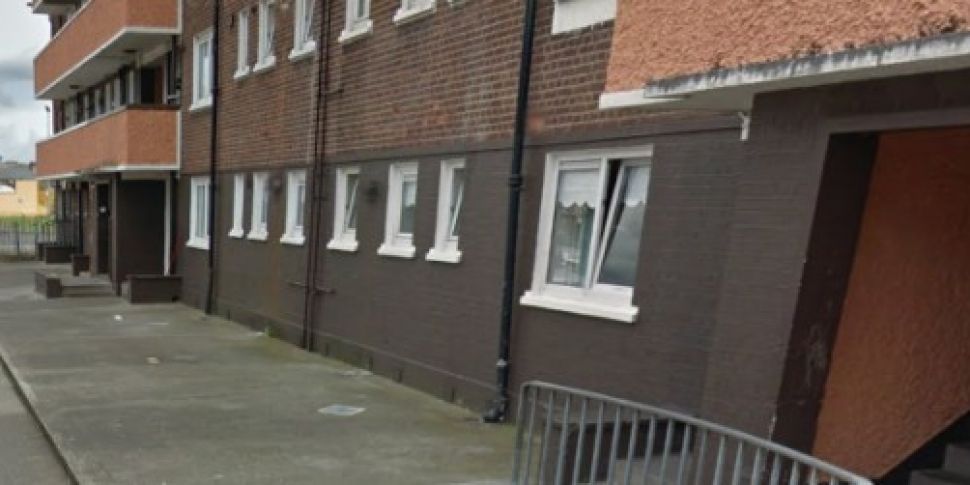Social housing residents are facing significant social stigmatisation, according to a new report, with many job-seekers forced to hide their address to avoid discrimination.
The Clúid Housing Association said social housing residents are often unfairly depicted as “work-shy scroungers” and find themselves battling against preconceived negative views from certain elements of wider society.
Clúid is a not-for-profit provider of social housing for over 6,000 tenants across the country.
The study, carried out by a team from University College Dublin, examined three case study estates in Dublin – Fatima Mansions, Ballymun and Clarion Quay.
Through interviews with residents, the research identified a range of responses to unfair stigmatisation – from those who defended their neighbourhood and community, to those who had falsified their address and changed their accent.
It found that in certain areas – especially where there is a high concentration of low income houses – the stigmatisation can become established and difficult to shift.
It also found significant evidence of local and national media playing a prominent role in perpetuating and intensifying the stigmatisation.
Speaking to George Hook on Newstalk’s High Noon this afternoon, Clúid’s Head of Policy, Simon Brooke said the stigmatisation is having “a really big affect on people’s lives.”
“They feel that they are being treated differently from other people,” he said. “It really boils down to a way in which social housing tenants are type-cast as being perhaps work-shy scroungers who are living off the state, who may have drug problems, lots of crime, anti-social behaviour - that kind of thing.
“So for those estates it is a really serious problem.”
Mixed-tenure communities
The research found that where you have large concentrations of households on low-incomes who are socially excluded, the problems they are facing are compounded and the stigma is magnified.
In “mixed-tenure communities” however – where social housing is included alongside private rented and owner occupied developments – the stigma is much lower.
“If you have a mixed-tenure neighbourhood you are more likely to have better facilities than in a neighbourhood that is dominated by people who are socially excluded in low incomes," said Mr Brooke.
“That may also affect the quality of local schools and local services as well so there are certainly benefits for those people in living in mixed-tenure communities - and that is good for society as a whole because it means that people feel part of something bigger rather than being socially excluded.”
The Minister for Housing Simon Coveney and the Minister for Public Expenditure Paschal Donohoe launch the Local Infrastructure Housing Activation Fund, 28-03-2017. Image: Leah Farrell/RollingNews
A label on your back
Responding to the report, The Minister for Housing Simon Coveney said we need to ensure that children don’t grow up “with a label on their back because of their address.”
He said the development of Ireland’s housing stock over the next five years is going to be based on integration:
He said the strategy is focused on “mixed tenure communities whereby social housing will be mixed in with private housing where possible.”
“The biggest idea in the government’s social housing plan is mixed-tenure integration of communities so that we are building vibrant, diverse communities as opposed to building local authority housing estates as was done in the past,” he said.
Currently all new housing developments in Ireland must include 10% social housing – a regulation that Clúid would like to see raised to 20%.
Community resistance
The Clúid report found that communities often resist new social housing developments when plans are put forward in their area – although Mr Brooke said that once the housing is built and tenants move in, the problems tend to disappear.
Mike Allen Director of Advocacy at Focus Ireland said a change of mindset is required to shift negative attitudes in wider society:
“Stigma is based on false belief,” he said. “The belief that people who are going to move in are going to more troublesome than other people who might move in.”
“We simply need to try to explain to people the reality of the circumstances.
“The vast majority of the families who are homeless at the moment; the only reason they are homeless is they couldn’t pay the rent. Otherwise they are exactly like anybody else.”
The Clúid report calls for new social housing to be provided in mixed-tenure communities, “with a sense of equality."
It found that existing social housing estates should be upgraded through new design features and the provision of arts and recreational facilities.
It said there is also a real need for increased community services including crèches, gyms and event spaces.
Newstalk Drive's Henry McKean visited the Fatima area this afternoon to talk to the community and discover whether the stigma still exists on the ground.










